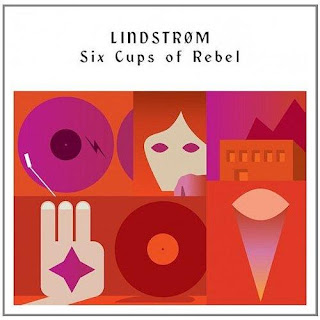Underrated Silence
Ulrich Schnauss
& Mark Peters
Bureau B Records.
No Ripcord Rating: 7/10
Two weeks before the
debut full-length between Ulrich Schnauss and Mark Peters hit store shelves, I caught
a charter bus to Montreal to attend its listening party. For those of you on
the island city wishing you’d known such an event was about to go down, relax.
For one thing, it was a relatively secret gathering between an iPod, my friend
and I. Besides that, we spent about half of the album preview laughing at the
song titles. “Yesterday Didn’t Exist”, “The Child Or the Pigeon”, “Gift Horse’s
Mouth”; it wasn’t the names, so much as their music’s inability to even broadly
illustrate why these songs were titled as such, that made Underrated Silence a
bit of a lark. Unlike the romantic dusk of “Sunday Evening In Your Street”
(from 2001’s Far Away Trains Passing By) or the rush of confidence that sends
shivers throughout “On My Own” (from A Strangely Isolated Place) – tracks that
actually form emotions beneath the surface sheen – these collaborative tracks initially
resound the randomness of their titles as if floating in from different
galaxies.
Needless to say,
Schnauss and Peters’ choice of song-titles can’t really be at fault here, not
when the more popular (and irresponsibly tossed-off) accusation of “sonic
wallpaper” seems applicable. And let’s face it, Ulrich fans: although 2007’s
Goodbye found Schnauss’ trademarked shoegaze-fueled songcraft striving for new
levels of crossover potential (“Stars”, “Medusa”), it veered just as often
toward a beatless, sterile ambience (“Einfeld”). Marking the collaborative
spirit of Mark Peters – bassist, keyboardist and guitarist of The Engineers –
doesn’t deter Underrated Silence from grasping after the latter approach, one
that largely shuns the gear-shifts that made Schnauss’ early work so exciting.
In effect, the listener’s wading period, whereby one treads through the more
atmospheric end of Schnauss’ style, might encourage the impatient among us to
toss up the “sonic wallpaper” defense. Not even staunch admirers of this
project would blame them; my Montreal-based friend and I – both longtime
Schnauss fans – couldn’t pinpoint at the time why we were joking about a
song-title like “Amoxicillin” but it’s plausibly because the composition itself
offers so few contagious ingredients.
If listeners forget
the hype implicated in the four years since Goodbye, forget the fruits of Schnauss/Peters’
earlier partnership on Enginners’ In Praise Of More, and treat Underrated
Silence as a joint experiment, they’ll uncover a surprisingly enjoyable detour.
Once acclimatized to its mellow focus, tracks such as “Rosen Im Asphalt” and
“The Messiah Is Falling” even unveil terse undercurrents of drama to deepen
otherwise ear-pleasing synth work-outs. It remains a pretty transient
collection – like their curious titles, these tracks feel beamed in from
planets entirely remote from one another – but Schnauss’ sheen unifies it as,
bare minimum, a pleasant journey through the haze. Just don’t expect to see
anything too clearly.
(This review was originally published on No Ripcord...)











